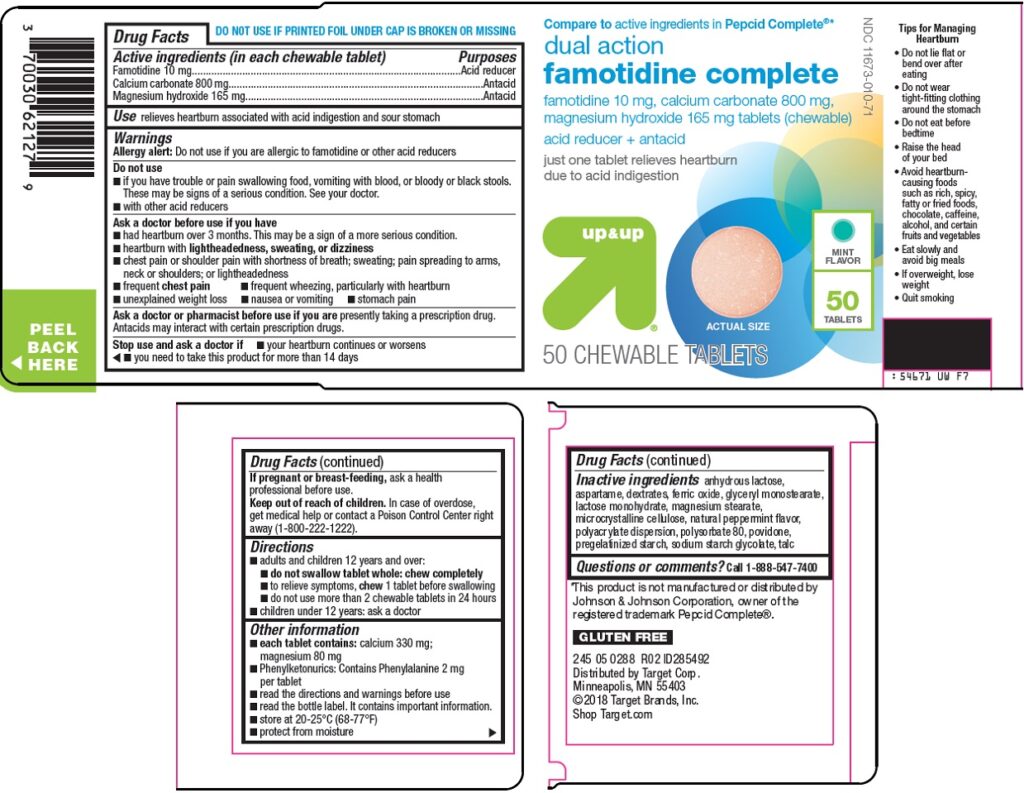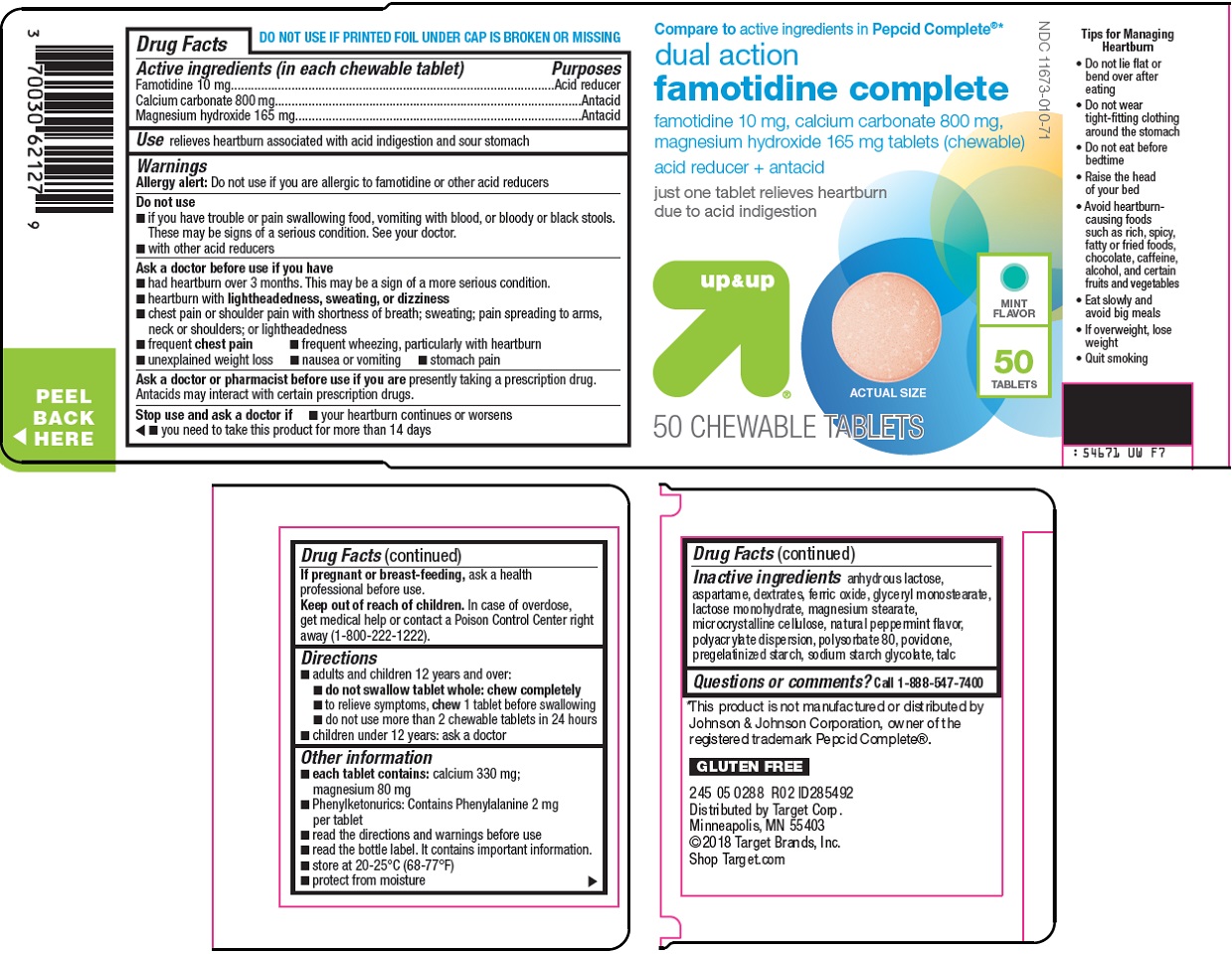
Famotidine for Newborns: A Comprehensive Guide for Parents
Discovering that your newborn is experiencing discomfort from acid reflux or GERD can be distressing. Famotidine, a medication commonly used to reduce stomach acid production, might be prescribed by your pediatrician. This comprehensive guide aims to provide parents with a thorough understanding of famotidine for newborns, covering its uses, dosage, potential side effects, and alternative treatments. We’ll delve into the nuances of administering this medication, monitoring your baby’s response, and making informed decisions in consultation with your healthcare provider. Our goal is to equip you with the knowledge and confidence to navigate this challenging period, ensuring your baby’s comfort and well-being. This guide reflects the latest expert consensus and insights based on years of pediatric experience.
Understanding Famotidine and Its Role in Newborn Care
Famotidine belongs to a class of drugs called histamine-2 receptor antagonists (H2 blockers). It works by reducing the amount of acid produced in the stomach. While it’s not specifically designed for newborns, it’s often prescribed off-label to treat conditions like gastroesophageal reflux disease (GERD) and esophagitis in infants. GERD in newborns can cause symptoms such as frequent spitting up, irritability, poor feeding, and difficulty sleeping. Famotidine helps alleviate these symptoms by reducing the acidity of the refluxed stomach contents, thus minimizing irritation to the esophagus.
How Famotidine Works in a Newborn’s Body
Newborns have immature digestive systems, making them prone to acid reflux. Famotidine works by blocking histamine, a substance that stimulates stomach acid production. By reducing the amount of acid, famotidine can help heal inflammation in the esophagus caused by reflux. It’s important to understand that famotidine does not stop reflux from happening; it only reduces the acidity of the refluxed material.
When is Famotidine Prescribed for Newborns?
Pediatricians typically prescribe famotidine for newborns when lifestyle modifications, such as frequent burping, smaller feedings, and keeping the baby upright after feeding, are insufficient to manage GERD symptoms. It’s also considered when the baby exhibits signs of esophagitis, such as pain during feeding or blood in the vomit. Famotidine is usually prescribed after a thorough evaluation to rule out other potential causes of the baby’s symptoms.
Proper Dosage and Administration of Famotidine for Newborns
The dosage of famotidine for newborns is highly individualized and depends on the baby’s weight and the severity of their condition. It’s crucial to follow the pediatrician’s instructions precisely. Never adjust the dosage without consulting your healthcare provider. Famotidine is typically administered orally, either as a liquid suspension or a compounded solution. The medication is usually given once or twice daily, often before feeding.
Calculating the Correct Dosage
The standard dosage range for famotidine in newborns is typically between 0.5 to 1 mg per kilogram of body weight per dose. Your pediatrician will calculate the exact dosage based on your baby’s specific needs. It is imperative to use an accurate measuring device, such as an oral syringe, to ensure you’re giving the correct amount. Avoid using household teaspoons or tablespoons, as they can be inaccurate.
Administering Famotidine to Your Newborn
Administering medication to a newborn can be challenging. Here are some tips to make the process easier:
- Use an Oral Syringe: An oral syringe allows for precise measurement and easy administration.
- Position Your Baby: Hold your baby in a semi-upright position to prevent choking or spitting up.
- Slow and Steady: Administer the medication slowly, allowing your baby to swallow between small amounts.
- Mix with Food (If Approved): If your pediatrician approves, you can mix the medication with a small amount of breast milk or formula to make it more palatable.
What to Do If You Miss a Dose
If you miss a dose of famotidine, give it as soon as you remember, unless it’s almost time for the next scheduled dose. In that case, skip the missed dose and continue with the regular dosing schedule. Do not double the dose to catch up.
Potential Side Effects and Precautions
Like all medications, famotidine can cause side effects, although they are generally mild and uncommon in newborns. Some potential side effects include:
- Irritability: Some babies may become more irritable or fussy while taking famotidine.
- Diarrhea or Constipation: Changes in bowel habits can occur, although these are usually temporary.
- Dry Mouth: Famotidine can sometimes cause a dry mouth.
- Headache: Although rare in newborns, headache has been reported as a side effect.
In rare cases, more serious side effects can occur. Seek immediate medical attention if your baby experiences any of the following:
- Allergic Reaction: Symptoms may include rash, hives, itching, swelling, difficulty breathing, or wheezing.
- Seizures: Although extremely rare, seizures have been reported in association with famotidine use.
Precautions and Contraindications
Famotidine should be used with caution in newborns with kidney or liver problems. It’s also important to inform your pediatrician if your baby is taking any other medications, as drug interactions can occur. Famotidine is contraindicated in newborns with a known allergy to famotidine or other H2 blockers.
Alternatives to Famotidine for Newborn GERD
While famotidine is a common treatment for newborn GERD, several alternative strategies and medications can be considered. These include lifestyle modifications, other medications, and, in rare cases, surgical interventions.
Lifestyle Modifications
Lifestyle modifications are often the first-line treatment for newborn GERD. These include:
- Frequent Burping: Burp your baby frequently during and after feedings to reduce air buildup in the stomach.
- Smaller Feedings: Offer smaller, more frequent feedings to prevent overfilling the stomach.
- Upright Positioning: Keep your baby in an upright position for at least 30 minutes after feeding to help prevent reflux.
- Thickened Formula: If your baby is formula-fed, your pediatrician may recommend thickening the formula with rice cereal to reduce reflux.
Other Medications
If lifestyle modifications are insufficient, your pediatrician may consider other medications, such as:
- Proton Pump Inhibitors (PPIs): PPIs, such as omeprazole and lansoprazole, are more potent acid-reducing medications. However, they are generally reserved for more severe cases of GERD due to potential long-term side effects.
- Antacids: Antacids, such as calcium carbonate, can provide temporary relief from heartburn. However, they are not typically recommended for long-term use in newborns due to potential side effects.
Surgical Interventions
Surgical interventions for GERD are extremely rare in newborns. They are typically reserved for cases where medical management has failed and the baby is experiencing severe complications, such as failure to thrive or recurrent aspiration pneumonia.
Monitoring Your Baby’s Response to Famotidine
It’s crucial to closely monitor your baby’s response to famotidine. Keep track of their symptoms, feeding habits, and overall well-being. Look for signs of improvement, such as reduced spitting up, decreased irritability, and improved sleep. Also, monitor for any potential side effects. Keep a detailed log of your observations and share them with your pediatrician during follow-up appointments. In our experience, consistent monitoring is key to optimizing treatment and ensuring the best possible outcome for your baby.
When to Contact Your Pediatrician
Contact your pediatrician if your baby’s symptoms do not improve after starting famotidine, or if they worsen. Also, contact your pediatrician immediately if your baby experiences any concerning side effects, such as an allergic reaction or seizures. It’s important to maintain open communication with your healthcare provider throughout the treatment process.
The Future of Newborn GERD Treatment
Research into newborn GERD and its treatment is ongoing. Scientists are exploring new medications and therapies that may offer more effective and safer options for managing this condition. Advances in diagnostic techniques are also helping to improve the accuracy of GERD diagnosis in newborns. As our understanding of newborn GERD evolves, so too will the treatment strategies available to parents and healthcare providers. According to a 2024 industry report, targeted therapies addressing specific underlying causes of GERD are a promising area of future development.
Expert Q&A on Famotidine for Newborns
-
Question: How long does it take for famotidine to start working in newborns?
Answer: Famotidine typically starts to reduce stomach acid within 1 to 3 hours after administration. However, it may take several days of consistent use to see a significant improvement in your baby’s symptoms. The time to noticeable effect can vary depending on the severity of the condition and individual response. -
Question: Can I give famotidine with breast milk or formula?
Answer: Yes, famotidine can generally be given with breast milk or formula. However, it’s best to administer it before feeding to allow the medication to be absorbed properly. Always follow your pediatrician’s specific instructions regarding administration. -
Question: What are the long-term effects of famotidine use in newborns?
Answer: While famotidine is generally considered safe for short-term use in newborns, the long-term effects are not fully known. Some studies have raised concerns about potential associations between long-term acid suppression and an increased risk of infections or nutrient deficiencies. Therefore, it’s important to use famotidine only when necessary and under the guidance of a pediatrician. -
Question: Can famotidine cause any nutrient deficiencies in newborns?
Answer: Long-term use of famotidine may potentially interfere with the absorption of certain nutrients, such as vitamin B12 and iron. However, this is more of a concern with prolonged use. Your pediatrician may recommend monitoring your baby for any signs of nutrient deficiencies if they are on famotidine for an extended period. -
Question: Is it safe to stop famotidine abruptly in newborns?
Answer: It’s generally not recommended to stop famotidine abruptly in newborns, as this can lead to a rebound increase in stomach acid production. Your pediatrician will typically recommend gradually weaning your baby off the medication to minimize this risk. Follow their instructions carefully. -
Question: What should I do if my baby spits up the famotidine dose?
Answer: If your baby spits up the famotidine dose within a few minutes of administration, you can repeat the dose. However, if it’s been longer than a few minutes, it’s best to wait until the next scheduled dose. Do not give an extra dose to make up for the spit-up. -
Question: How is famotidine different from ranitidine?
Answer: Both famotidine and ranitidine are H2 blockers that reduce stomach acid production. However, ranitidine has been withdrawn from the market due to concerns about contamination with a potential carcinogen. Famotidine is now the preferred H2 blocker for treating GERD in newborns. -
Question: Can famotidine be used to treat colic in newborns?
Answer: Famotidine is not typically used to treat colic in newborns. Colic is characterized by unexplained crying and fussiness, and its cause is not fully understood. While some babies with colic may also have GERD, famotidine is only effective for treating acid-related symptoms. -
Question: Are there any natural remedies that can help with newborn GERD?
Answer: Some natural remedies, such as probiotics and gripe water, may help alleviate mild GERD symptoms in newborns. However, their effectiveness is not well-established, and they should not be used as a substitute for medical treatment. Always consult your pediatrician before using any natural remedies. -
Question: How long will my newborn need to take famotidine?
Answer: The duration of famotidine treatment for newborns varies depending on the severity of their condition and their response to the medication. Some babies may only need to take it for a few weeks, while others may require longer-term treatment. Your pediatrician will determine the appropriate duration of treatment based on your baby’s individual needs.
Conclusion
Navigating newborn GERD and the use of famotidine can be overwhelming for parents. By understanding the medication’s purpose, proper dosage, potential side effects, and alternative treatments, you can make informed decisions in consultation with your pediatrician. Remember that close monitoring and open communication with your healthcare provider are essential for ensuring the best possible outcome for your baby. We hope this comprehensive guide has provided you with valuable insights and empowered you to advocate for your newborn’s health and well-being. Share your experiences with famotidine for your newborn in the comments below. Explore our advanced guide to newborn health for more information.

